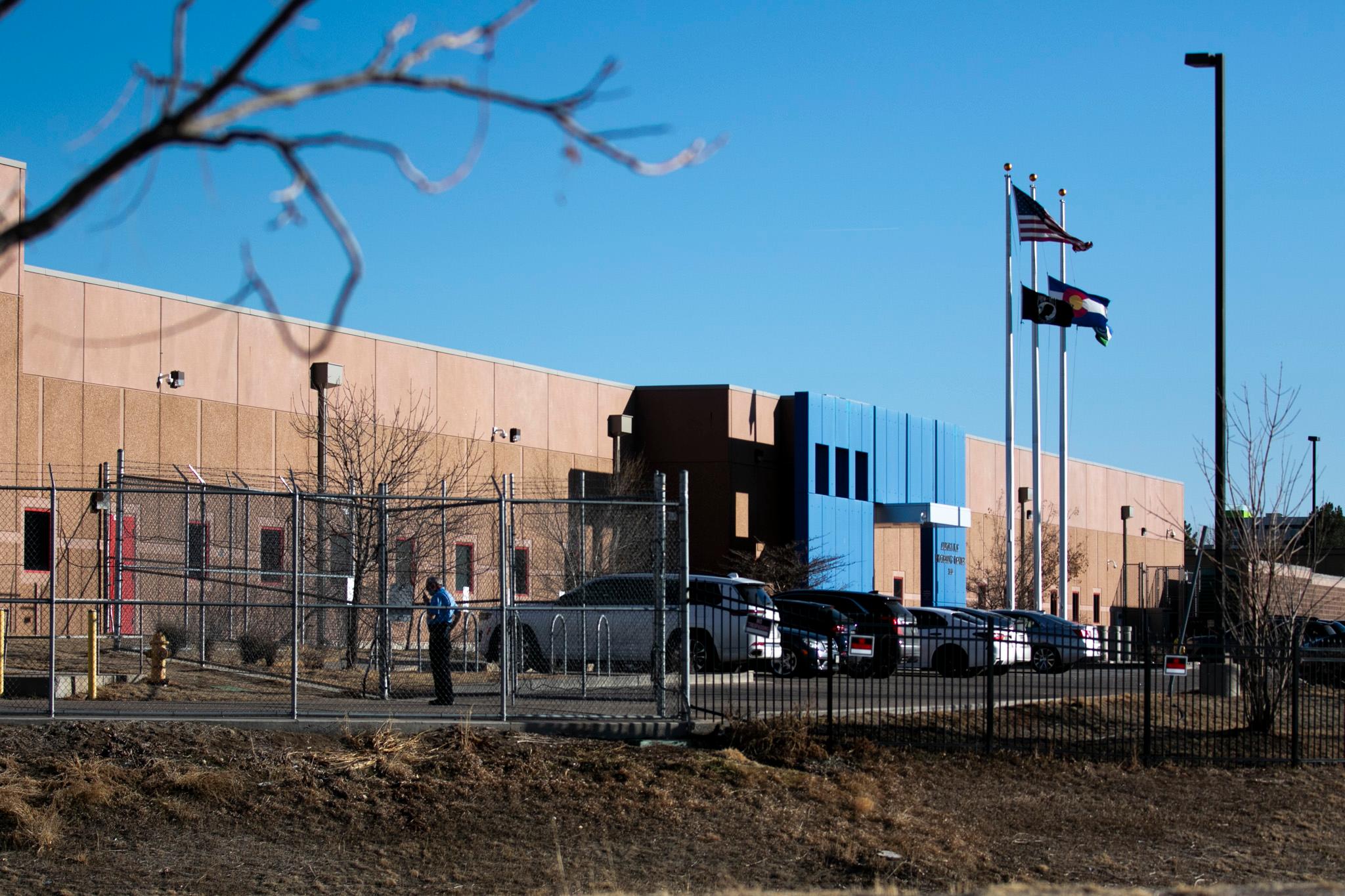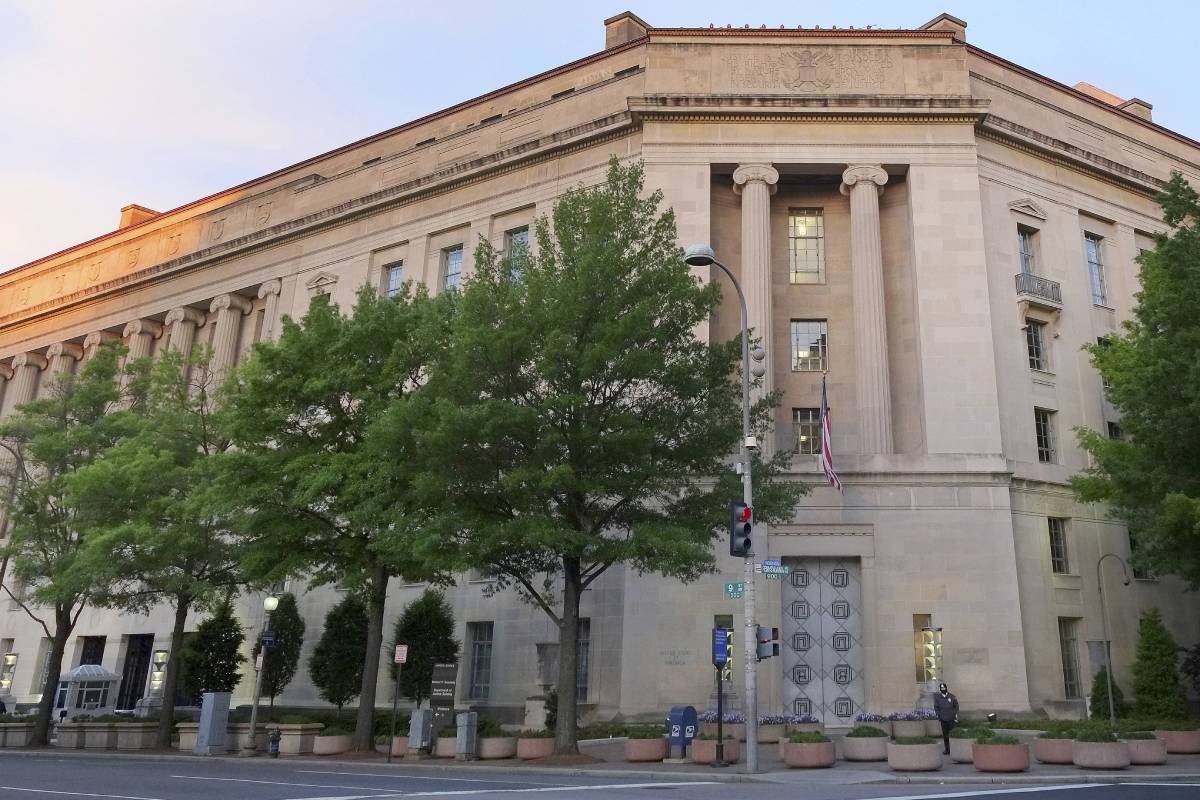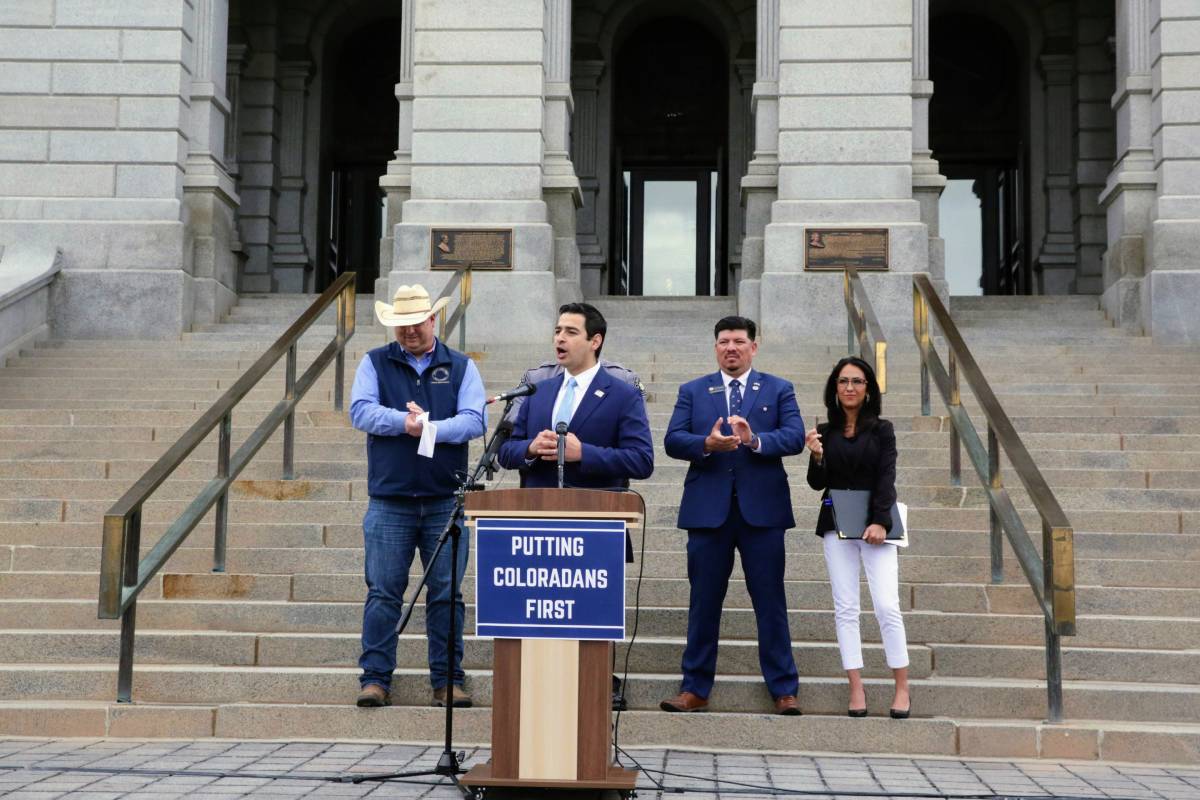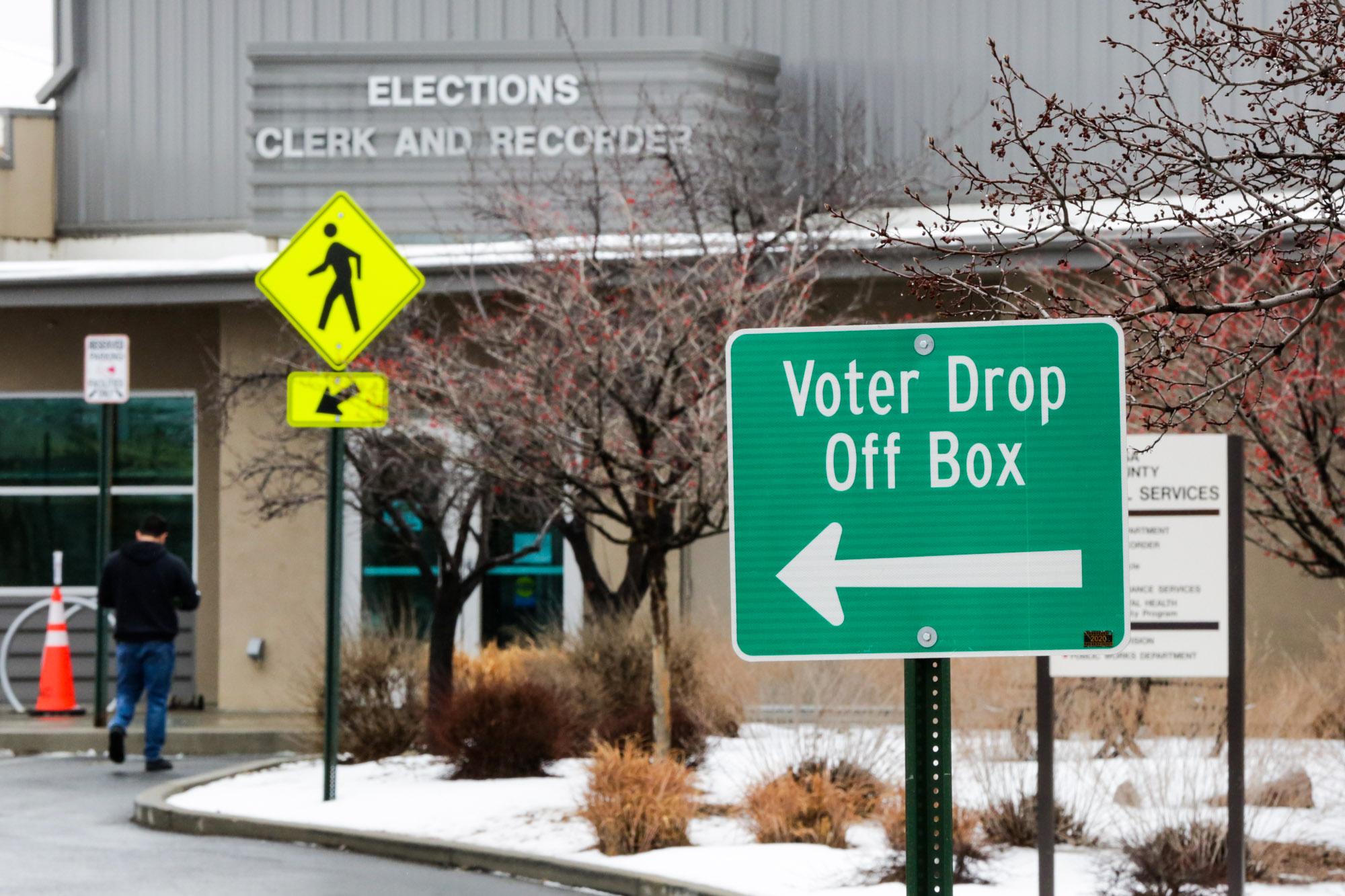
The Trump administration has asked the Denver-based 10th U.S. Circuit Court of Appeals to overrule a Colorado federal judge who said this week that the Department of Homeland Security can’t deport – or even move – up to 100 Venezuelans detained in Aurora outside of Colorado.
It is one of several legal fights playing out in federal courts over President Donald Trump’s decision to invoke a 1700s-era wartime act to rapidly deport thousands of Venezuelan migrants with no due process.
In its brief filed with the appellate court, the U.S. Justice Department framed the dispute as nothing less than a test of the boundaries of executive authority.
“The (temporary restraining order) irreparably harms the United States’ conduct of foreign policy. It usurps the President’s statutory and constitutional authority to address what he has identified as an invasion or predatory incursion.” U.S. Department of Justice lawyers wrote in an emergency motion to stay filed late Thursday to the circuit court. “The Executive Branch’s protection of these interests, including 'sensitive and weighty interests of national security and foreign affairs,' inherent to combating terrorist groups, warrants the utmost deference.”
In Colorado, civil rights lawyers say 11 Venezuelans who had been housed at the GEO Detention Center in Aurora have already been sent to a Salvadoran prison and up to 100 others, or more, could be subject to immediate deportation under Trump’s interpretation of the Alien Enemies Act.
The administration has been sending detainees to a prison in El Salvador, which is known for human rights abuses and torture, according to civil rights lawyers.
The ACLU of Colorado initially asked the U.S. District Court for Colorado to intervene once they identified two Venezuelan men, only named in court documents by initials R.M.M. and D.B.U., who they feared were at risk for immediate deportation without due process under the Alien Enemies Act.
In court earlier this week, the federal government pushed back, saying those two individuals, who are 32 and 25 years old and have been in Colorado for a couple of years, aren’t considered Tren de Aragua gang members right now and aren’t considered enemies of the United States.
The government argued that they shouldn’t be subject to the order.
Federal Judge Charlotte Sweeney asked if they could immunize the two men from removal forever and the federal government declined. The two remain in custody at the immigration detention center in Aurora. The judge granted a temporary restraining order preventing them from being deported, and extended it provisionally to 100 or more others.
Beyond D.B.U. and R.M.M., the ACLU and the Rocky Mountain Immigrant Advocacy Network say they have identified those 100 or so people in interviews at the detention center who could be subject to deportation without due process to El Salvador. Sweeney provisionally certified the class of plaintiffs in her Wednesday ruling.
Immigration proceedings can take years as individuals make claims for asylum or get a chance to provide judges from the Justice Department with evidence of persecution in their home countries.
If it withstands judicial scrutiny, Trump’s use of the Alien Enemies Act could shortcut all that, allowing planeloads of new immigrants with pending claims to stay in the U.S. to simply be removed from the country. The U.S. is not at war with Venezuela, but has frosty diplomatic relations with the South American nation and Venezuela has been coy about accepting the return of its citizens who left for the U.S. So El Salvador has stepped in and agreed to take those deportees into prison. Planeloads were sent before courts intervened. Those flights have now stopped.
The instant deportations to a notorious prison accomplish two Trump goals: immediately reducing the immigrant population in the U.S., even if only by a few hundred, and scaring others who are here into self-deporting to avoid losing control of their own fate and being separated from family.
The federal government has maintained in this case now before the 10th Circuit, and at least six other cases like it across the country, that the Alien Enemies Act is a legitimate power given to the Executive Branch and that the president of the United States has wide discretion to use it when he needs to protect the United States from foreign incursions.
Sweeney’s ruling on Wednesday pushed back on that, questioning whether the administration had improperly invoked the act. She particularly noted that she thought the words “invasion” and “war” don’t accurately comport with the reality of what has happened on the ground.
The administration took issue with that in their filing late Thursday, noting that the president has full authority to decide when and how to invoke the act and that decision should not be subject to judicial review.
“The very nature of the President’s power to order the removal of all enemy aliens rejects the notion that courts may pass judgment upon the exercise of his discretion,” federal lawyers wrote.
And to drive home the point, the federal government spent several pages in the appeal to the 10th Circuit talking about the dangers posed by the Venezuelan gang.
“Although the definition of 'invasion' most easily applies to a military entry … the accepted definition of that term is far broader,” federal government lawyers wrote. “Their illegal entry into and continued unlawful presence in the United States is an 'unwelcome intrusion' of a foreign government-linked entity that additionally entails hostile acts that are contrary to the rights of U.S. citizens to be free from criminality and violence.”
Gangs, including foreign gangs like El Salvador’s own MS-13, have long had a far more substantial presence in the U.S. than Tren de Aragua, but no president before has ever labeled them an invading foreign power.
The government also further argued to the 10th Circuit that even if the Venezuelan men don’t qualify for removal under the Alien Enemies Act, they actually could be deported under expedited removal, which is a faster-moving process that allows for deportation without seeing an immigration judge.
“If an immigration officer determines that an alien is inadmissible because they do not have valid entry documents, the 'officer shall order the alien removed ... without further hearing or review unless the alien indicates either an intention to apply for asylum ... or a fear of persecution,'” the government said in the court filing. “And even if the individual claims asylum or a fear of persecution, the 'process is scarcely more involved' because the immigration officer can quickly deny the claim.”
ACLU of Colorado’s legal director Tim Macdonald said he was hopeful the circuit court will deny the government’s motion.
“The government cannot possibly claim that there is an 'emergency' in not being able to deport people without due process,” he said, in an emailed statement. “If they believe in the allegations they make, the government should not be afraid of judicial review and due process.”
The 10th Circuit judges have given the ACLU until 5 p.m. Saturday to reply to the emergency petition.
Additionally, the ACLU is going to seek a preliminary injunction to lengthen Sweeney’s order that none of the 100 or so people in their protected class be moved out of Colorado for the time being until the Alien Enemies Act question is resolved.
| This story is part of a collection tracking the impacts of President Donald Trump’s second administration on the lives of everyday Coloradans. Since taking office, Trump has overhauled nearly every aspect of the federal government; journalists from CPR News, KRCC and Denverite are staying on top of what that means for you. Read more here. |
Funding for public media is at stake. Stand up and support what you value today.









